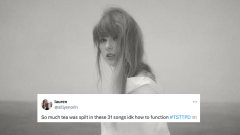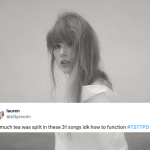
Three Drunk Monkeys are a creative agency as diverse as they are clever. They can’t be pinned down, and have written, directed and produced ad campaigns, commercials, websites, short films, products and TV shows. They created a furore recently by producing three ads for ABC show The Gruen Transfer – much to the disgust of many ABC viewers – and have scored some major campaigns with the likes of Foxtel, Pepsi Max and Nova. Pedestrian caught up with founding member Scott Nowell (who founded TDM with Justin Drape and Mark Green) to chat about success, creativity and the pains of pitching a TV show.
P: Scott, for people who don’t know can you tell us a bit about what the Three Drunk Monkeys do?
TDM: We’re a company in between advertising and doing longer format broadcast stuff, I mean, we’ve just got a couple of shows on air at the moment, we’re also doing advertising campaigns and other things for clients of ours. It’s hard though, I mean people, they’ll say they’re a content company or they’re not a traditional advertising agency so what are they?
It’d be nice to be able to say “oh yeah we’re this”, but I guess we’re just advertising, ads and broadcast at the moment I suppose.
P: Yeah sure thing, so what were your backgrounds? Because you guys haven’t been an agency for that long have you? It’s been about three years or something?
TDM: Yeah, well Justin and I were working at Saatchi together and also Mark Green, and actually Tim Bullock who wrote the great 30 Seconds with us. And we, Justin and I, left and started freelancing and that sort of thing, created our own TV show, and a little while later Mark Green joined us – a business man, you need one of those. And things just took off from there I suppose, that was about three years ago.
P: And is there a particular piece of work you guys have created that you’re the most proud of?
TDM: Well I guess long running campaigns for Foxtel are still going, and in advertising terms it’s helped them. Getting TV shows up and running and on air, within a few years of writing it has been great. It’s one of those things, every project you work on becomes your favourite project in a way.
P: So can you tell us a little bit about the relationship with Andrew Denton and his production company? And how you guys met him and how that came about?
TDM: Yeah sure, when we were at Saatchi, Andrew came in and wanted help with Enough Rope and Justin and I worked on that, in fact Tim Bullock worked too on that job. Then while we had a chance we showed a few of our ideas to him, one of which was 30 Seconds – and he said go and write that, write the first couple of episodes and we’ll see what happens. And we did that, and yeah he signed us on the option to it. That was a few years ago, so that was just him and Justin and I doing that.
Since then, he’d been working on Zapruder’s other films and when we left Saatchi we went and worked in an office at Zapruder’s for a while. And yeah, he’s basically been the executive producer on a show the whole way.
P: So for people, everyone seems to have an idea for a TV show kicking around in a bottom draw or something, you’ve explained the process of meeting Andrew but can you explain the process of actually getting the show up and on television and signed to a network?
TDM: Yeah, I can describe it as painful in one word. But it’s through the process of writing you know? And then you’re at a good place and you go to a network and you get rejected and then you keep writing, and script editors will come on board and tell you one thing, and another script editor will tell you another thing.
I think it’s really about perseverance and believing in the idea – it really is a long process of writing and rewriting and just getting it to a point where it’s good enough so people can’t ignore it I suppose. We’ve spoken to a bunch of different people, we had script editors before and it wasn’t until we worked with a guy called Andrew Knight that things really took off.
Andrew actually executive produced and was talking to networks and he was talking to Foxtel at the same time we were working on Foxtel, we had a good relationship with then as well. So just seeing what was going to happen from there, and it didn’t and then it was back on again. I think it’s pretty typical of these sorts of projects.
On the other hand we had this cooking show, went to SBS, Hopscotch films and Benchmark films, went to SBS with that and were with them for 10 minutes and within a couple of months we were making the first 16 episodes.
P: Yeah wow.
TDM: So completely the opposite end of the spectrum.
P: As you said it’s probably a different take on an advertising agency, but I guess at the core of any good agency there’s got to be creativity. Can you tell us how creativity works in your agency and how you make that a focal point of both the content that goes to TV as well as the content that you create for clients?
TDM: Yeah creativity mixed with business – that’s what you’re selling in a way. With us we try and get people to believe in our creativity and come to us with ideas that might not necessarily be on the briefs that they’re working on, and if they’re good enough we’ll try and make them. If they’re TV shows, we’ll try and make it, we just sold through a bunch of products to a pet company.
We had a brief that was “we need a TV ad to promote the world dog games’ and we’ve gone back with some ideas for merchandise that could potentially be a lot bigger than the TV ad, and they’ve taken those up. And so that merch will possibly be going out here and England and possibly the States when the dog games come around.
But it’s that kind of thing, we don’t want to look at, I mean working in a big advertising agency you get given a brief and okay do a 30 second ad, and you do it. There’s not a lot of space to go “we don’t think you should do an ad”, we think you should do a website and do a bunch of products or something along those lines, or lets try and do a web series, because it’s more effective for you guys.
So I guess making a point, we’re just trying to let creativity run everything, everyone in here is part of the process whether it’s the finance girl or the concept managers, each are as important as each other. Just try and get everyone involved, everyone’s part of this, everyone’s making stuff.
P: So what happens once you guys receive a brief? How do you involve everyone, what happens in the office? Is there a process?
TDM: Basically you get briefs, and as you know, you get a core group of people working around that brief so you have creative people, you’ve got content managers depending on how big the thing is, TV producers, so there’s a core group of people working around the project, and designers, so that might be depending on how big the project is, that’s anywhere from four people or 10 or 12 at any one time on any one project. We have a lot of projects going at the same time, there’s so many briefs coming through.
So what generally happens is the creatives will go away and work on initial ideas or flesh out bigger areas, then give it to production. One difference with us is we get the client in pretty early into this process so it becomes their idea as well.
P: Can that ever hurt the process? Because with a lot of agencies they don’t always have a great relationship with the client, I think a lot of the time agencies feel like they’re fighting against that.
TDM: Yeah absolutely, at most places we’ve worked at before it’s an ‘us and them’ thing, and you’re certainly thinking ‘oh no we know what’s best, we’re geniuses who come up with strong ideas and you people don’t understand that’ and blah blah blah.
But for us we’ve found that it’s far easier, what used to happen with a big agency is that you’d get a brief and then four weeks later you’d go back with a smoke machine sort of thing, big presentation, and the client would turn around and say well it’s not quite right.
It always seemed crazy to us that we didn’t just sit down and chat to them earlier in the process, so what we try and do is have an initial chat with the client after we’ve worked on a few areas and just involve them, say what do you think of this, what do you think of that? Which areas are you liking best so we can push them, and we find that works a lot better than just going away, coming back with a presentation – here it is.
P: Either that or you could just get Don Draper in.
TDM: Yeah, yeah, nah, we don’t do that. Don Draper Kodak presentation. I’d like to have the oratory skills to do that sort of thing. You know, the system we work at it’s basically because we’re crap, we don’t have a smoke machine.
I think on another level, it just means the client is in the process, and much to most of what advertisers discuss, clients actually have pretty good ideas they can throw in and can make the work a lot better. And so when you work like that you end up with a product that everyone’s kind of worked on it’s just better for it.
P: You mentioned earlier that obviously you are in the business of selling creativity, commodifying creativity, you know creativity and commerce don’t always sit well together. Is that ever an area that weighs heavily on your mind or creates tension at all?
TDM: There’s always tension and that’s the interesting part of advertising I suppose because as everyone knows it’s where art meets commerce. So of course there’s tension when you’ve got – their job is to sell X amount of units your job is just to think of the best way to do that.
You’re thinking, a lot of the times about stupid things, silly ideas or whatever but it may be the best way to do it. There’s always that reconciliation I suppose from the numbers man and the creativity. So yeah there’s always that tension but that’s part of it and it’s always gratifying getting a great idea through that makes everyone nervous and it completely exceeded expectations in terms of sales.
P: Is there anything big on the horizon for you guys that you can talk about?
TDM: Maybe breakdowns, haha. No don’t print that. We’ve got a few projects on the go, we’ve had clients approach us about longer format stuff now, it’s getting more and more prevalent.
Since 30 Seconds launch we’ve had numerous requests from clients to create longer format stuff for them. We’ve got a pretty big Telstra campaign, a huge Foxtel campaign, we’re in production on both of those, so it’s basically a madhouse here at the moment.
P: Just back to 30 Seconds, I know when people are working on shows and just when working on any concept, they’re pretty protective over it and a lot of the time they’re quite scared that someone will do something similar. I know in terms of viewpoints they’re quite different, but when you saw Mad Men come out was there a reaction?
TDM: My reaction was shit, good, but also we’d been working on it for so long that we’d heard rumours of other similar shows being made in Australia, there was a show that came out in the states I can’t remember what it was called, it wasn’t that great though. It’s kind of interesting, there’s a French film called 99 Frames which is really good, but you just gotta stick to your guns to believe what you’re doing is good and different.
Because you can’t live in fear of something exactly the same coming out the same time, you just got to do your own work and not worry too much and say what you’ve got is completely unique and keep pushing.
And Mad Men is sort of a completely different thing as well, it’s more of a…
P: Drama…
TDM: Drama, it’s a period drama of course and it’s set in an advertising agency, and you do learn a little about advertising but generally it’s a character driven thing. I love it, I think it’s awesome.
P: Yeah it is, brilliant, well thanks for that Scott, I’ll let you get back to work.
TDM: Cheers.
Three Drunk Monkeys will be speaking at Semi-Permanent in Melbourne on the 9th and 10th of October.
Check out some of our other interviews with Semi-Permanent speakers Keith Schofield, photographer Chris Colls, and Daniel Askill of Collider.







